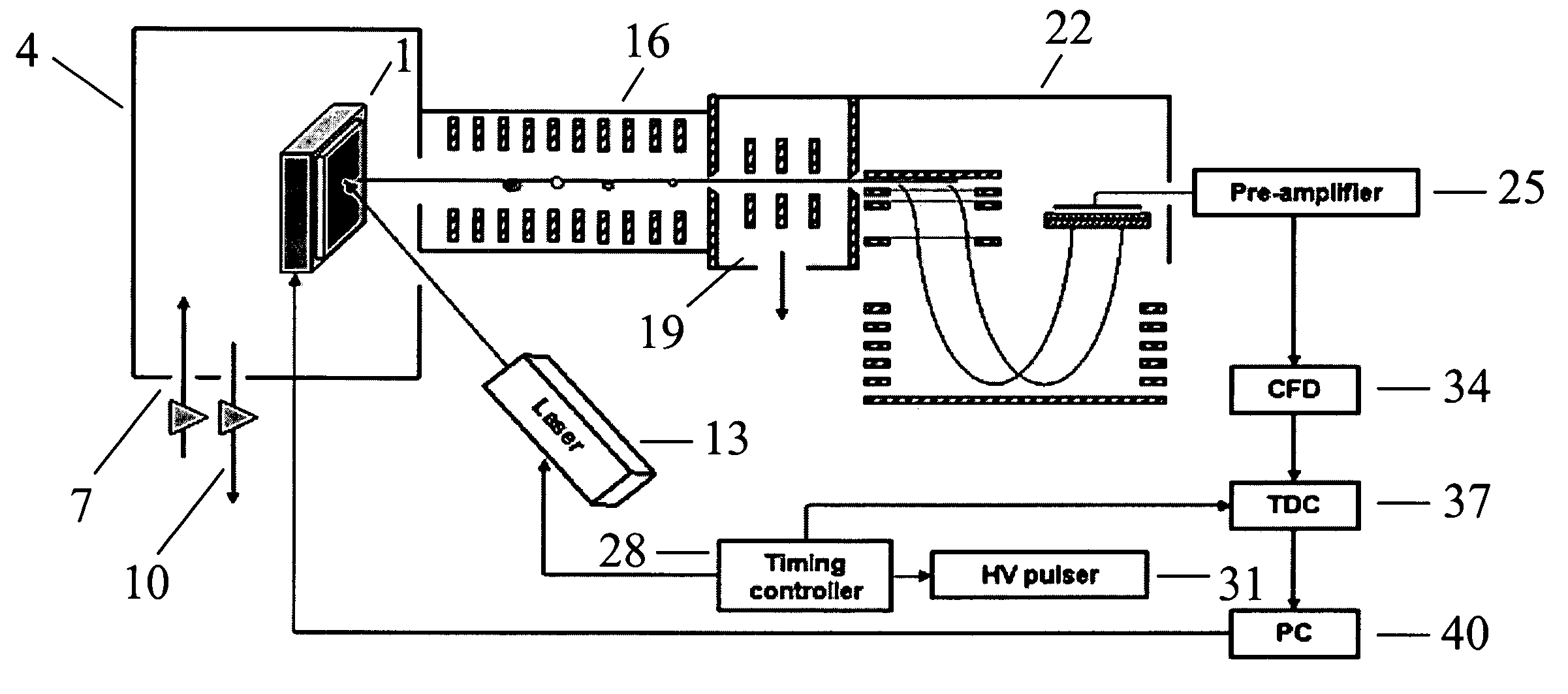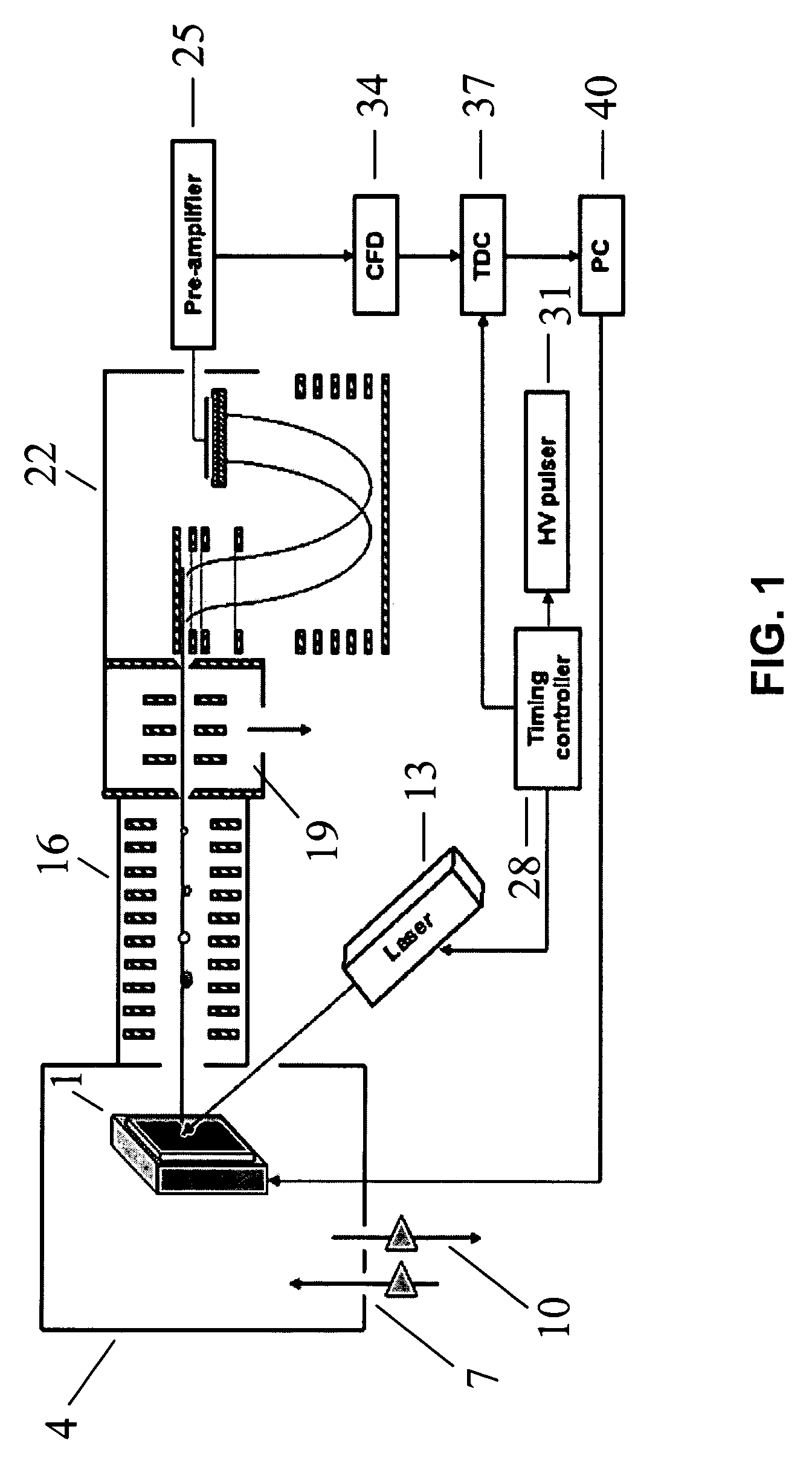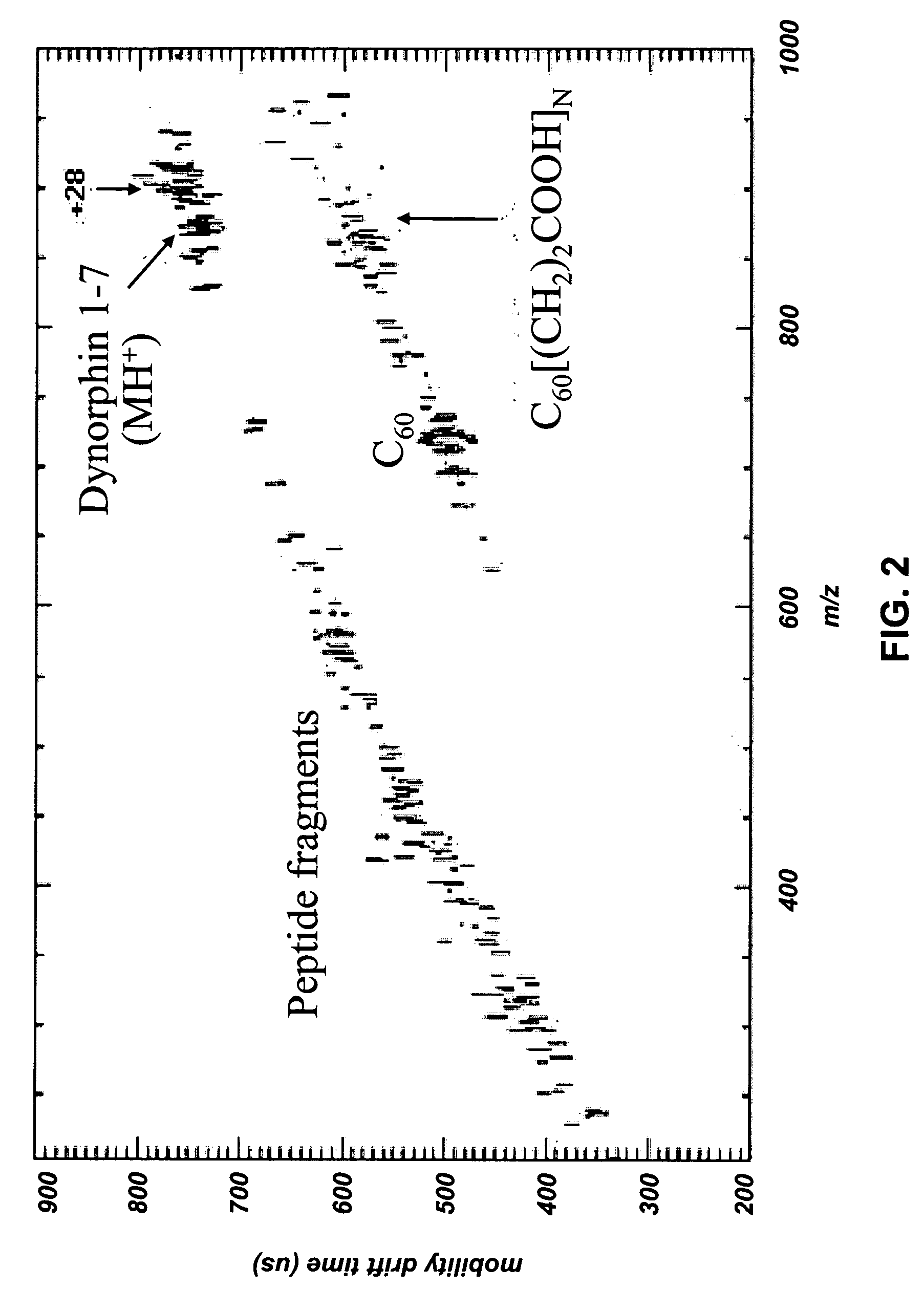MALDI-IM-ortho-TOF mass spectrometry with simultaneous positive and negative mode detection
a mass spectrometry and positive and negative mode technology, applied in the field of maldi-im-ortho-tof mass spectrometry with simultaneous positive and negative mode detection, can solve the problems of non-uniform distributed analyte, inability to completely free defects, and inability to use slurried small particles as matrices, etc., to achieve efficient combination of matrices, enhance the art of mass spectrometric analysis, and eliminate substrate effects substrate effects
- Summary
- Abstract
- Description
- Claims
- Application Information
AI Technical Summary
Benefits of technology
Problems solved by technology
Method used
Image
Examples
Embodiment Construction
[0028]As used herein, the use of the word “a” or “an” when used in conjunction with the term “comprising” in the claims and / or the specification may mean “one,” but it is also consistent with the meaning of “one or more,”“at least one,” and “one or more than one.” Still further, the terms “having,”“including,” and “comprising” are interchangeable and one of skill in the art is cognizant that these terms are open ended terms.
[0029]As used herein, ATOFMS is defined as a single particle aerosol time of flight mass spectrometer.
[0030]As used herein, ES is an abbreviation for and is defined as electrospray and refers to an electrospray ion source. ESI is an abbreviation for electrospray ionization.
[0031]As used herein, IMS is an abbreviation for and is defined as ion mobility spectrometry. The abbreviation IM is defined as ion mobility and refers to an ion mobility cell, especially when it is used in conjunction with other analytical instrumentation such as mass spectrometry.
[0032]As use...
PUM
 Login to View More
Login to View More Abstract
Description
Claims
Application Information
 Login to View More
Login to View More - R&D
- Intellectual Property
- Life Sciences
- Materials
- Tech Scout
- Unparalleled Data Quality
- Higher Quality Content
- 60% Fewer Hallucinations
Browse by: Latest US Patents, China's latest patents, Technical Efficacy Thesaurus, Application Domain, Technology Topic, Popular Technical Reports.
© 2025 PatSnap. All rights reserved.Legal|Privacy policy|Modern Slavery Act Transparency Statement|Sitemap|About US| Contact US: help@patsnap.com



